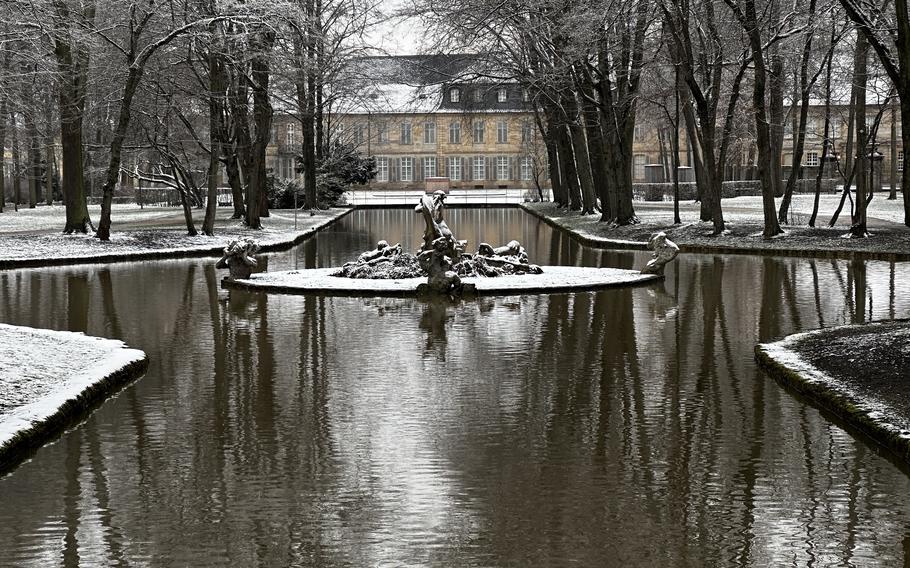
Fountains and statues can be found throughout the Hofgarten of Bayreuth, Germany. The courtyard's construction dates back to the 1600s but its look comes from the 18th century. (Michael Slavin/Stars and Stripes)
American service members and their families stationed in Bavaria have some of the best tourism options in the world, with cities like Prague and Munich within driving distance and so much of Europe available on a short flight.
But there are also great day trips. One of them is Bayreuth, which is within an hour of Grafenwoehr.
Steeped in music and history, Bayreuth is a place to get some high culture in your life. Its architectural marvels, such as the Neues Schloss (New Palace), the Hermitage and the Margravial Opera House, are the epitome of Baroque beauty.
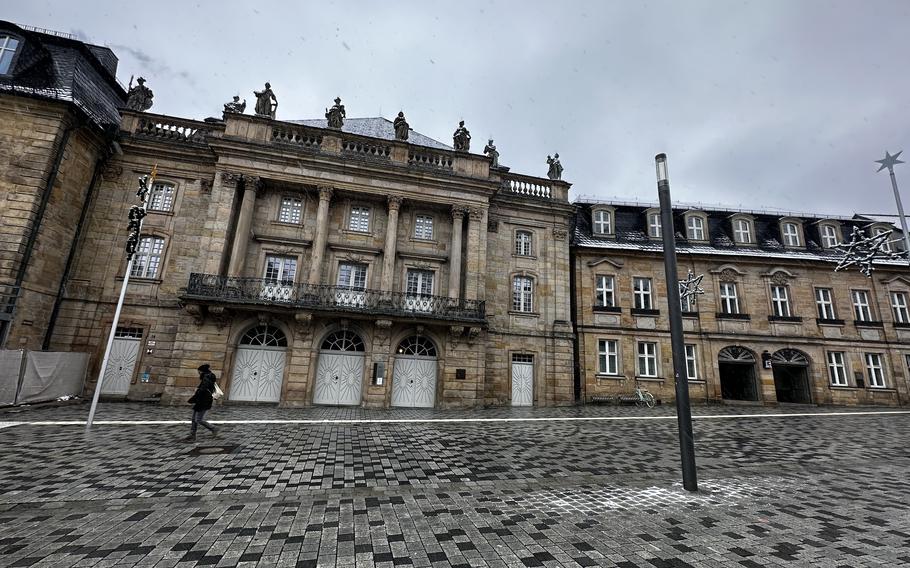
The Margravial Opera House in Bayreuth, Germany was originally finished in 1750. It is one of the city's main attractions and lined with extravagant decorations. (Michael Slavin/Stars and Stripes)
Attached to the New Palace, the Hofgarten is a courtyard over two football fields long. In the spring and summer months, the courtyard is filled with greenery, wildlife, fountains and winding walkways.
Although the city dates back to 1194, it didn’t take shape until the 1600s, when Margrave Christian took control of the city. The reign of Margravine Wilhelmine, a generous patron of the arts, left a rich legacy.
While the bustling musical and cultural scenes of Bayreuth seem to have gone slightly dormant for the winter, there is still beauty in the surroundings.
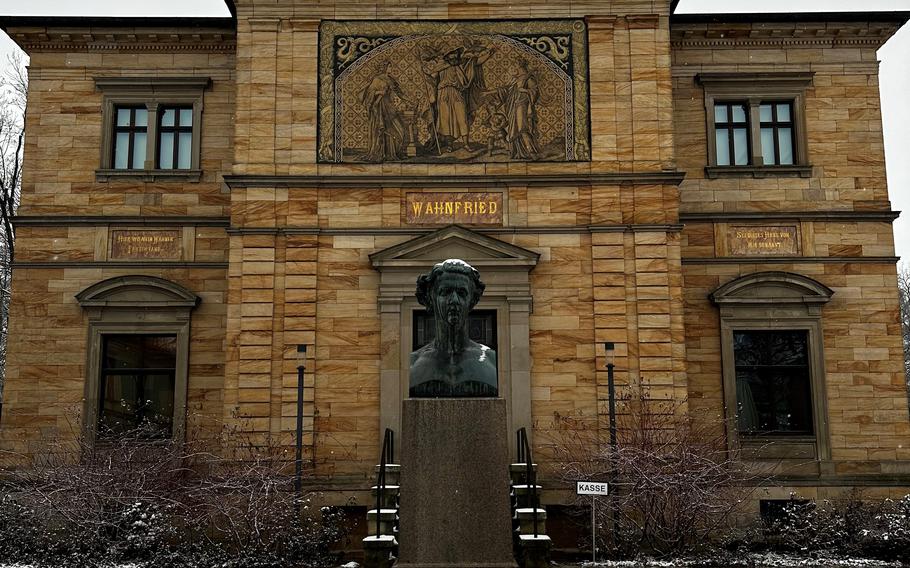
The composer Richard Wagner’s home still stands not far from the Hofgarten in Bayreuth, Germany. (Michael Slavin/Stars and Stripes)
The Richard Wagner Museum, which displays the effects of the controversial composer who was Bayreuth’s most notable resident, is another important part of this Bavarian city.
The museum introduces visitors to Wagner’s works and his wide-ranging impact on music. Woven into the city, Wagner’s musical impact remains strong, as his descendants still run his opera house and festival.
Every summer, the Festival Theater, designed especially for performances of Wagner’s works, hosts an acclaimed musical celebration in his honor that draws devotees from all over the globe. Known as the Festspielhaus in German, the venue was where Wagner’s “The Ring of the Nibelung” debuted in 1876.
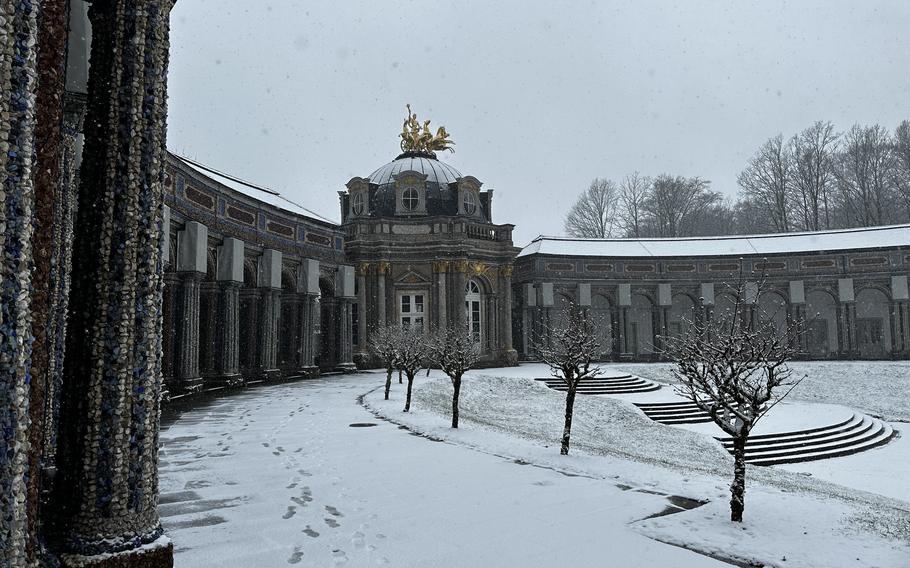
The Hermitage in Bayreuth, Germany, is where the regional margraves of the 18th century decided to turn the royal forest into an imprint of a monastic order. (Michael Slavin/Stars and Stripes)
A mere 3 miles from the city center is the Hermitage, also called the Eremitage, where the regional margraves of the 18th century decided to turn the royal forest into an imprint of a monastic order.
Decked out in extravagant landscaping, fountains and buildings, the Hermitage is anything but simple. Even in the winter, it looks like something out of this world.
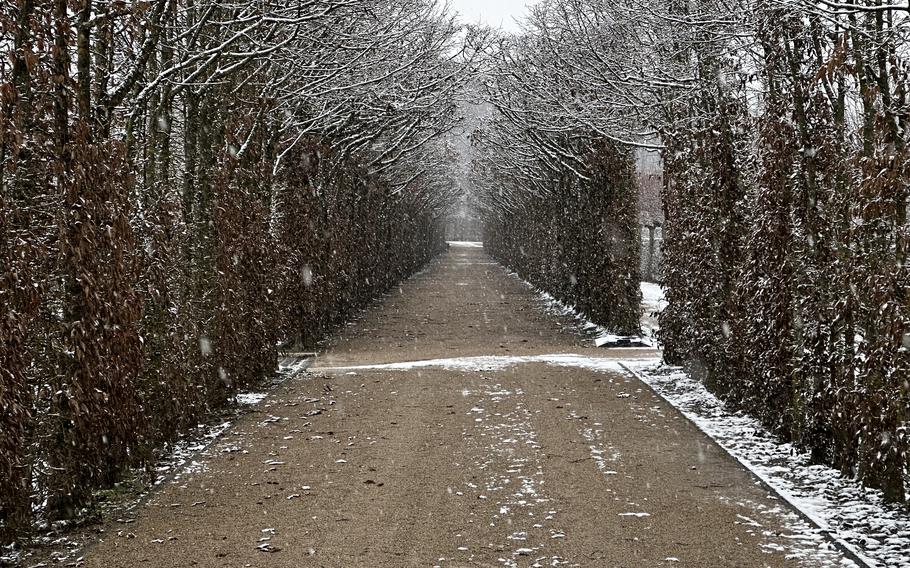
The trails of the Hermitage in Bayreuth, Germany, are usually decked in greenery and flowers. In the winter, the trails still make for a pretty sight during a stroll. (Michael Slavin/Stars and Stripes)
The pathways leading up to the Hermitage will make you believe you are in a Victorian garden. When coming out of the paths shaped by the trees, you’ll notice a structure embedded with stones and a gold quadriga on top.
The surrounding fountains heighten the allure, although they do not operate during the cold times of the year and the figures in them are temporarily covered up.
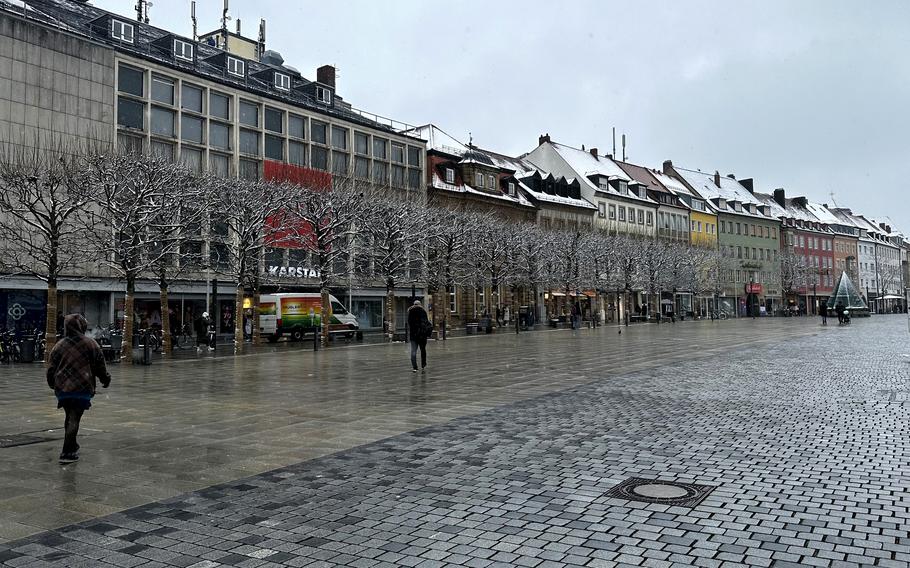
Martkplatz is the center of Bayreuth, Germany. The market square is lined with shops, restaurants, breweries and more. (Michael Slavin/Stars and Stripes)
After the Hermitage, head to Marktplatz, which has an array of shops, restaurant and food stands mixed in with the historic buildings that surround it. On the west end of Marktplatz, the Rotmain Center is a more modern mall to shop at, if you’re so inclined.
There are two other attractions in the vicinity of Bayreuth that visitors might want to make time to check out. A little over 10 miles to the northwest is the famed brewery town of Kulmbach, which puts on a major beer festival every year in the same months as Bayreuth’s Wagner festival runs.
The town is also home to Plassenburg castle, whose collection of more than 300,000 tin soldiers is said to be the largest in the world.
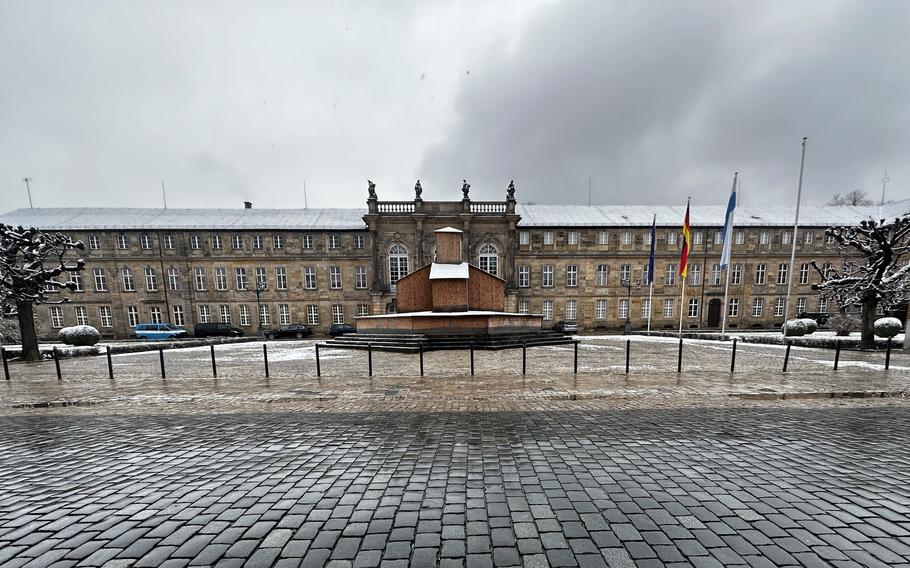
The Neues Schloss, or New Palace, in Bayreuth, Germany, Jan. 18, 2023. It is located close to the city center and is connected to the Hofgarten. (Michael Slavin/Stars and Stripes)
The other nearby feature that beckons visitors is the Sanspareil rock garden, which is yet another part of the legacy of Margravine Wilhelmine and her husband.
Situated near Hollfeld some 16 miles outside Bayreuth, the garden boasts an array of fantastically shaped outcroppings. One of its prime draws is a distinctive stone theater whose ruined appearance is by design.
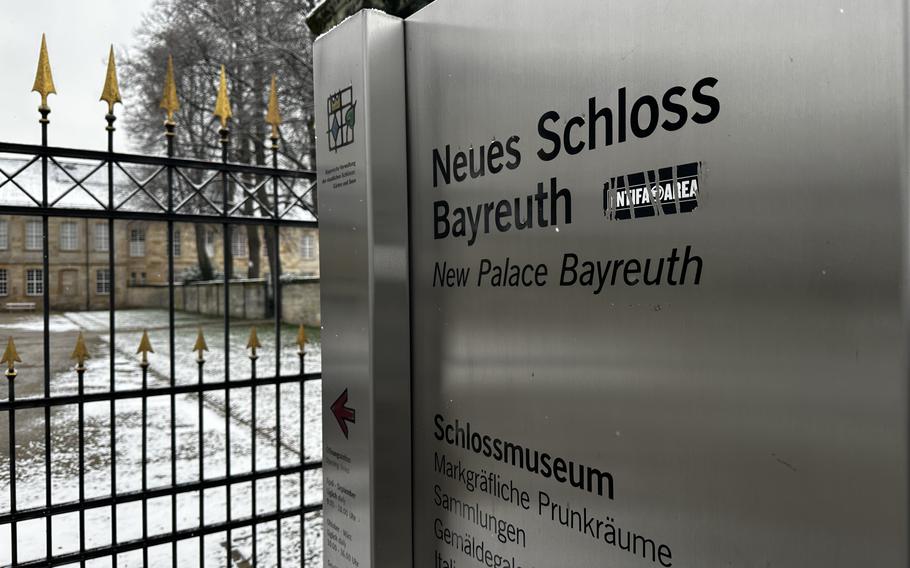
Signs throughout the city of Bayreuth, Germany, point visitors to attractions such as the many museums and castles. (Michael Slavin/Stars and Stripes)
On the QT
Directions: Bayreuth is a 45-minute drive from the Grafenwoehr Training Area.
Cost: The Hermitage is free. Museums and tours prices range from 5 to 20 euros.
Hours: Most parks and museums open around 9 a.m. and close around 5 p.m. to 8 p.m.
Information: Online: bayreuth-tourismus.de/en